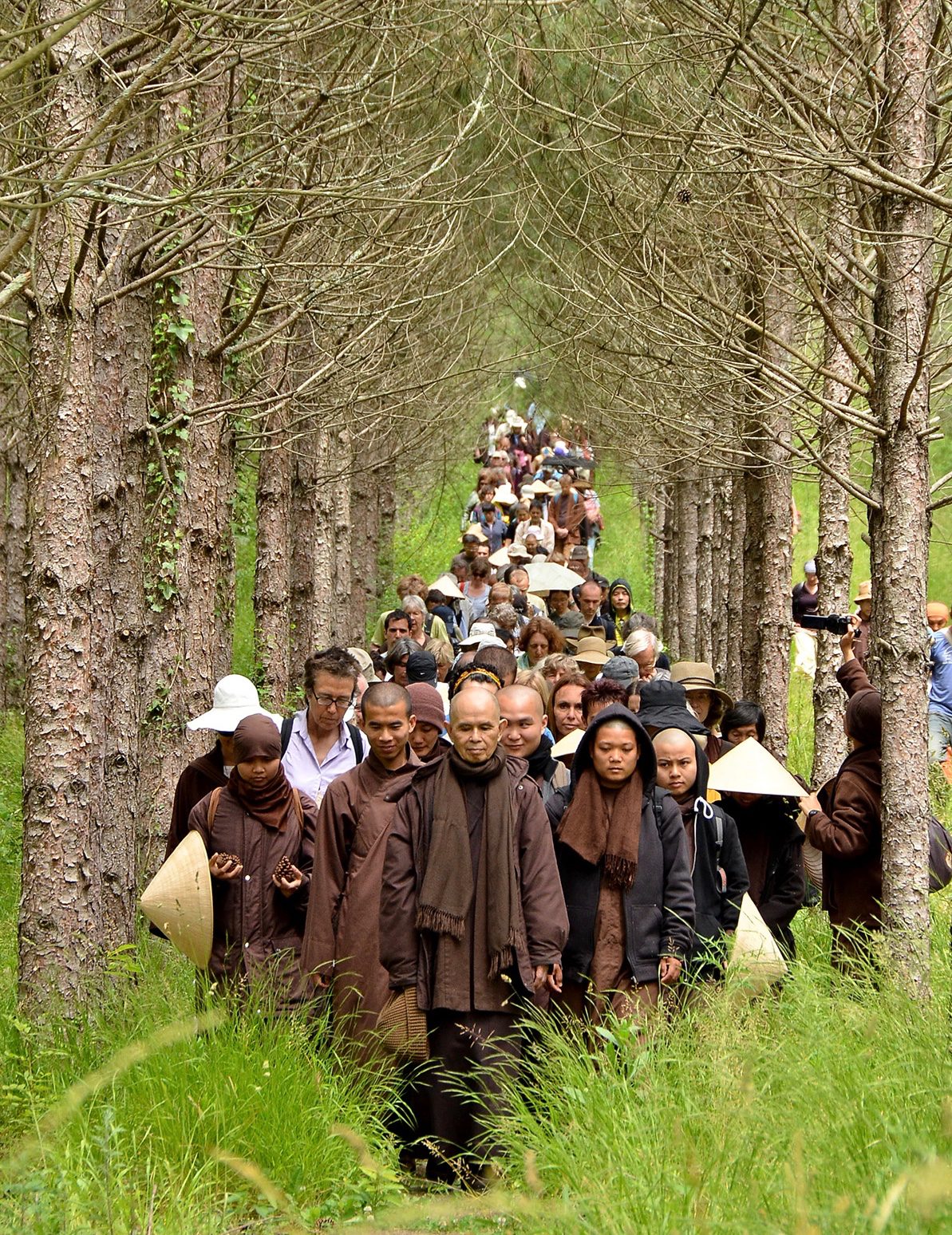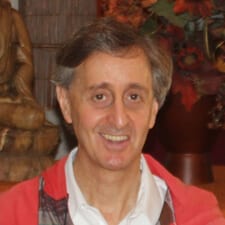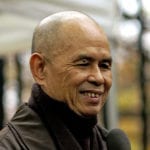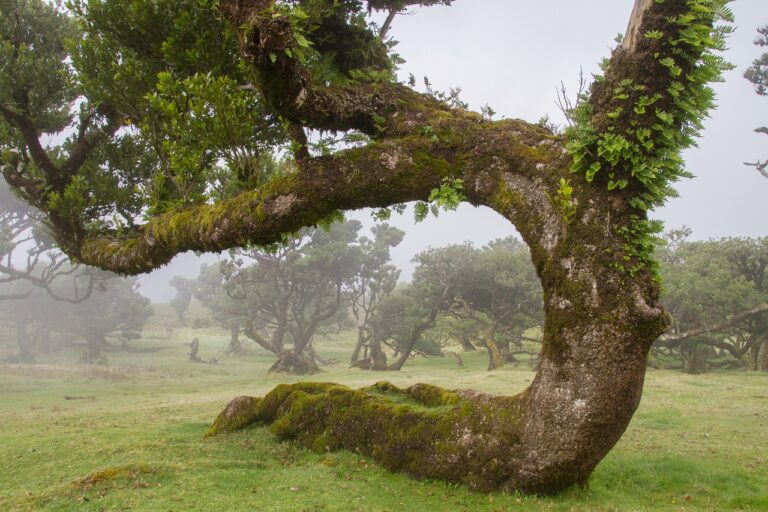I’ll start with my own first meeting of Thích Nhất Hạnh in person. I met him for the first time in 1987. I went to a retreat that he was leading at the Insight Meditation Society in Barre Massachusetts. I had been going to retreats at IMS for about 10 years and was very, very familiar with the style of retreat they did there where, similar to Spirit Rock, people would be in silence for up to a few months. Typically, at that time, it would be a week or 10 days, sitting and walking meditation all day long in silence. The sittings would be up to 45 minutes to an hour or so. They would be held in silence.
With this retreat with Thích Nhất Hạnh, the longest sitting was 20 minutes and we did not keep silence. It would’ve been very hard because there were about 20 kids who were part of the retreat, who were walking around in the hall and so forth. I remember some of the staff and old timers at the retreat center wondering what kind of retreat this was, seeming to imply that it was spiritually maybe lightweight.
This exists because of that. We can know that philosophically, but he was teaching that as a way of perceiving moment by moment.
Thích Nhất Hạnh would bring the children into the meditation hall a lot. He would typically give 2 two hour talks a day. We’d often go walking on the country road near IMS in groups, with children typically near the beginning. And so again, for some of the people who had done retreats, it didn’t seem like much was happening. It was sort of pleasant in certain ways, but as I experienced it, the retreat was about learning something very, very profound.
I remember talking with people after the retreat and saying it wasn’t about concentration or necessarily having my mind be very, very still. I learned something very profound about interconnection and noticing the interconnection of all things and all people moment to moment for days on end and living in that understanding of interdependence. Thích Nhất Hạnh, he was often known as Thay which is Vietnamese for teacher, called this quality of understanding an understanding of interbeing. I was just very deeply affected by that sense of interbeing, which entered really strongly into my awareness.
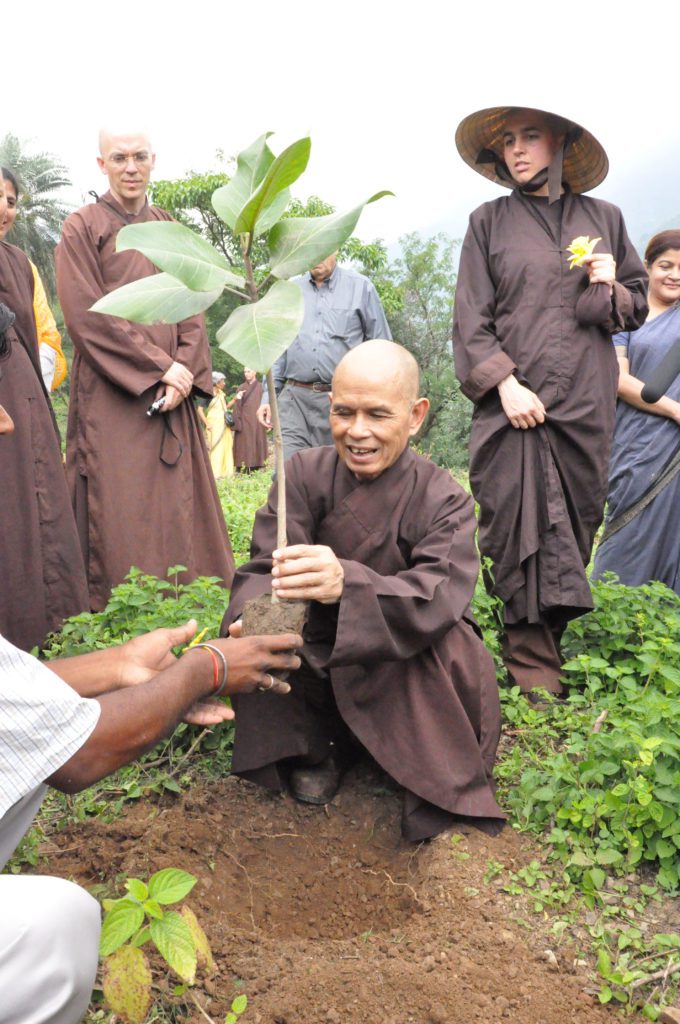
Some of the ways that this occurred were from his teaching. He would often start a talk with 20 or so children being up front and he would hold up an orange and he would say, do you see this orange? And they would say, yes! He would ask, can you see the clouds where the oranges were growing? They would say, yes! Can you see the rain coming down from the clouds in the orange? Yes! Can you see the soil where the oranges were growing? Yes! They would really get into it. There he was, he was teaching this for the children. Of course, he was also very much teaching for the adults. He was teaching about this interconnection and teaching us to actually see that interconnection moment by moment. He would let us really explore that teaching, this exists because of that. We can know that philosophically, but he was teaching that as a way of perceiving moment by moment. He called this learning more about interbeing.
He has a whole book that he published on that theme, a book called Interbeing, one of his major teachings about really understanding interdependence. He would bring that into understanding how I am not fundamentally different from someone with very different views from me or from someone who does very unskillful things. He would bring this into social awareness, the sense of interbeing, understanding that there is a deep connection and we often tend to see things as if we were separate. We especially like to see people with different views, different perspectives, as different. He was talking about the profound interconnection.
Some of that growing sense of interbeing was at times painful.
Some of this was quite beautiful and pleasant. And some of it was not always so pleasant. Some of that growing sense of interbeing was at times painful. For example, about half of the people at the retreat were Vietnamese Americans. There were about 80 people at the retreat, and about 40 were of Vietnamese ancestry. And there were a lot of kids. Again, this was 1987. So we were only 12 years removed from the end of the so-called Vietnam war. Of course in Vietnam, they call it the American war. Right? We saw at least one film on some of Thích Nhất Hạnh’s work in Vietnam, which had images of B52s dropping bombs. So there was a sense of, okay, there’s interdependence in that way as well. Who was responsible for the bombs falling? Who had family members killed? These were all people who we were spending time with.
This teaching of interbeing is the first teaching I really want to name as really, really crucial and a beautiful teaching very relevant for now. I think the teachings of interbeing are connected with compassion, learning compassion, learning empathy, and learning to question our own self righteousness at times or our own negative views of ourselves. And really seeing that deep sense of interconnection.
The complete talk is available here: Honoring the Great Teacher of Interbeing and Engaged Buddhism, Thich Nhat Hanh.
An account of Donald Rothberg’s experience of the 1987 retreat with Thich Nhat Hanh can also be found in his book, The Engaged Spiritual Life.

